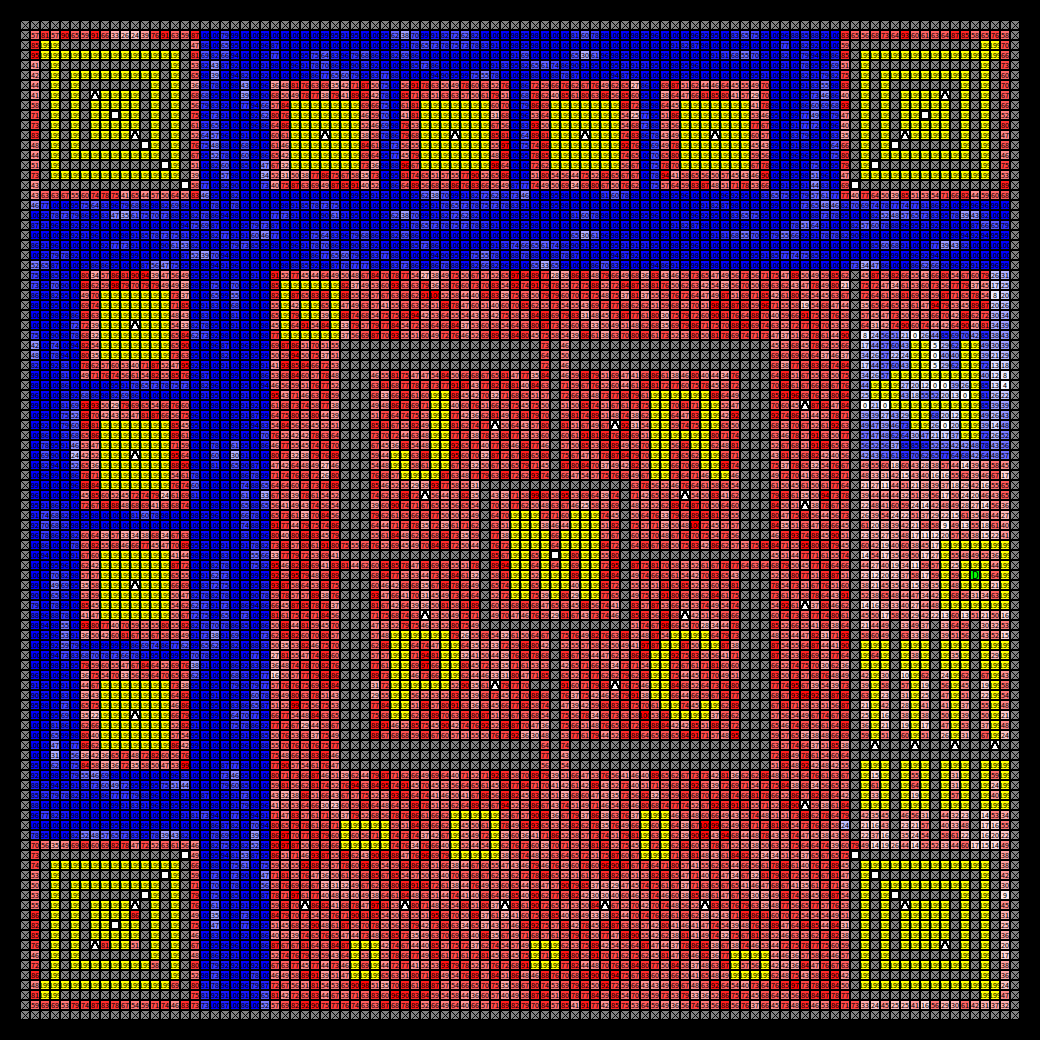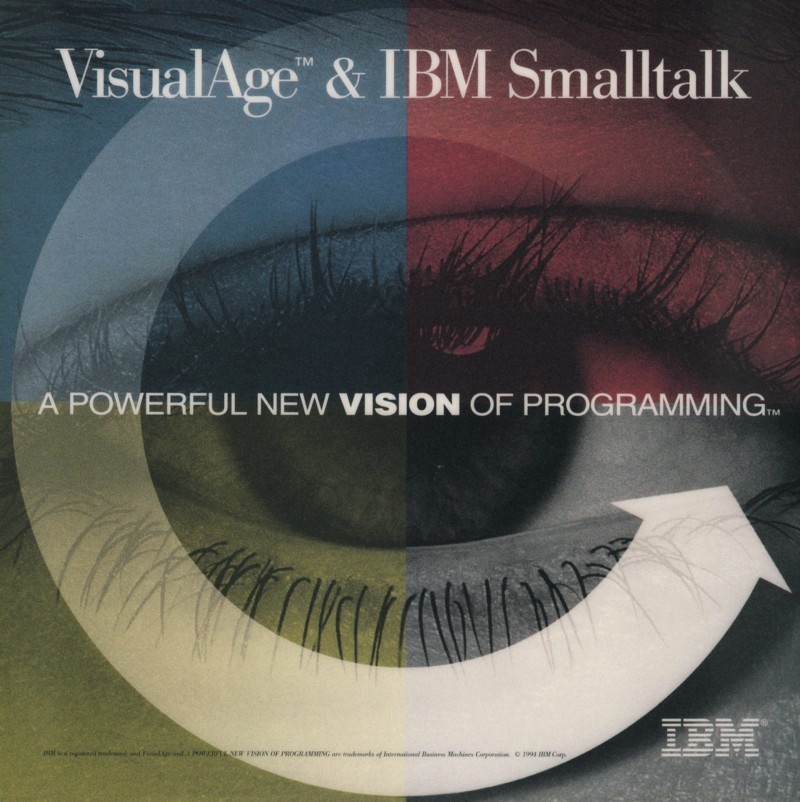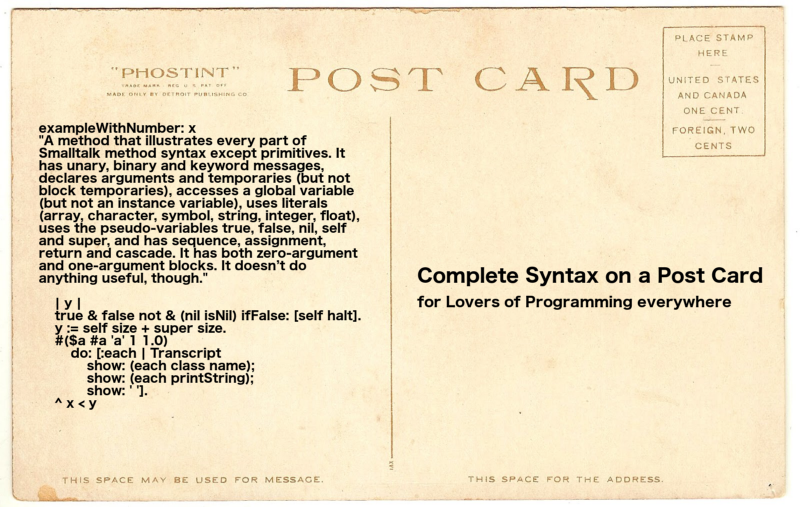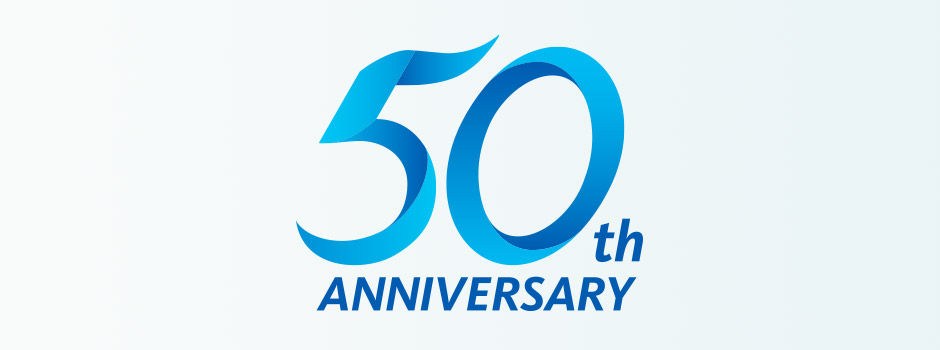[This is an imaginary interview conducted by an imaginary IT magazine called Technophobe. It was done in January of 2020.]
Richard Kenneth Eng is a Smalltalk evangelist who’s been blogging about Smalltalk for five years. He is something of a celebrity at Quora and Hacker News. He organized a high school competition recently called The James Robertson Memorial Programming Competition, or JRMPC for short, to wide acclaim.
Technophobe: Thank you for agreeing to this interview, Mr. Eng.
Richard Eng: Glad to be here.
Technophobe: What are you trying to accomplish as an evangelist?
Richard Eng: I’m trying to market the Smalltalk programming language to the public. The goals are to grow the user base, as well as the supporting ecosystem, and to make Smalltalk popular again, the way it was back in the 1980s and 1990s.
Technophobe: Why did you feel that Smalltalk needs to be “marketed?”
Richard Eng: For years, Smalltalkers tried publishing technical articles, giving technical seminars, offering technical workshops, producing GitHub repositories, making demonstration videos, and so on. They believed that this would lead to wider Smalltalk adoption.
So I asked, “How’s that working for you?” After all this time, adoption was still anemic and Smalltalk was still mired in relative obscurity. Smalltalk jobs were still rare as hen’s teeth. Smalltalk was nowhere to be found at TIOBE, PYPL, RedMonk, IEEE Spectrum, and StackOverflow Developer Survey.
I decided that there had to be a better way. I decided that somebody had to accept the mantle of Smalltalk evangelism. This would be an enormous undertaking, which would entail a full-time effort of advocacy and blogging on social media. It would entail proper marketing, not just technical presentation.
So I focused on winning people’s attention and persuading them at the emotional level, not just the logical level. I took my cue from master marketers like Steve Jobs and Elon Musk.
Technophobe: Do you recommend other programming languages do the same like Crystal, Elixir, F#, Haskell, Haxe, Idris, Julia, Nim, etc.?
Richard Eng: Yes, I do. The hard part will be finding a volunteer who has the time, energy, and creativity to do all the hard work. This is a marathon, not a sprint.
Smalltalk evangelism took out a full five years of my life.
Technophobe: What inspired you to take on this task?
Richard Eng: James Robertson, one of the best Smalltalk evangelists who ever lived. Also, this article by Blake Watson: Today’s Smalltalk: A Second Look At The First OO Language.
I had the wherewithal to realize that I could do this job. I simply had to make the decision to proceed. This was in late 2014.
Technophobe: Why couldn’t someone else do this job?
Richard Eng: Someone else could. The problem is that no one stepped up. The truth is, most people do not have the inclination to become a full-time evangelist. They have other responsibilities like earning a living, taking care of their family, and engaging in recreation for their own well-being. Doing this job on a part-time basis would take many, many years — much too long to be effective.
Nevertheless, I hope I can set an example for others to follow.
Technophobe: Why does Smalltalk deserve such a great undertaking?
Richard Eng: Smalltalk is one of the greatest programming languages ever created. Its unique, synergistic combination of small, simple language and live coding environment, as well as a total system of live objects, makes Smalltalk one of the most productive programming languages in the world. It is not uncommon to hear stories of five times productivity improvement.
Imagine the cost savings in cutting your development time in half. Imagine much shorter “time to market.” Imagine not having to hire more developers to meet your demanding schedules.
At a time when there is a programmer crunch and a vast backlog of software that needs to be written, it would be a terrible shame for the world to overlook this hidden treasure.
Technophobe: What has been the result of your advocacy?
Richard Eng: Well, so far, the needle hasn’t been moved at TIOBE. Smalltalk remains stuck outside of the Top 50. But I am encouraged by the fact that my Smalltalk blog has been read by more than 100,000 people worldwide. There is probably a bit of a lag time before the public is mobilized to try out Smalltalk. I’m hoping to see Smalltalk re-enter TIOBE’s Top 50 (it was #37 in 2013) in the next couple of years, just in time for Smalltalk’s 50th anniversary.
Technophobe: Thank you for your time.
Richard Eng: You’re most welcome. Thank you for having me.











